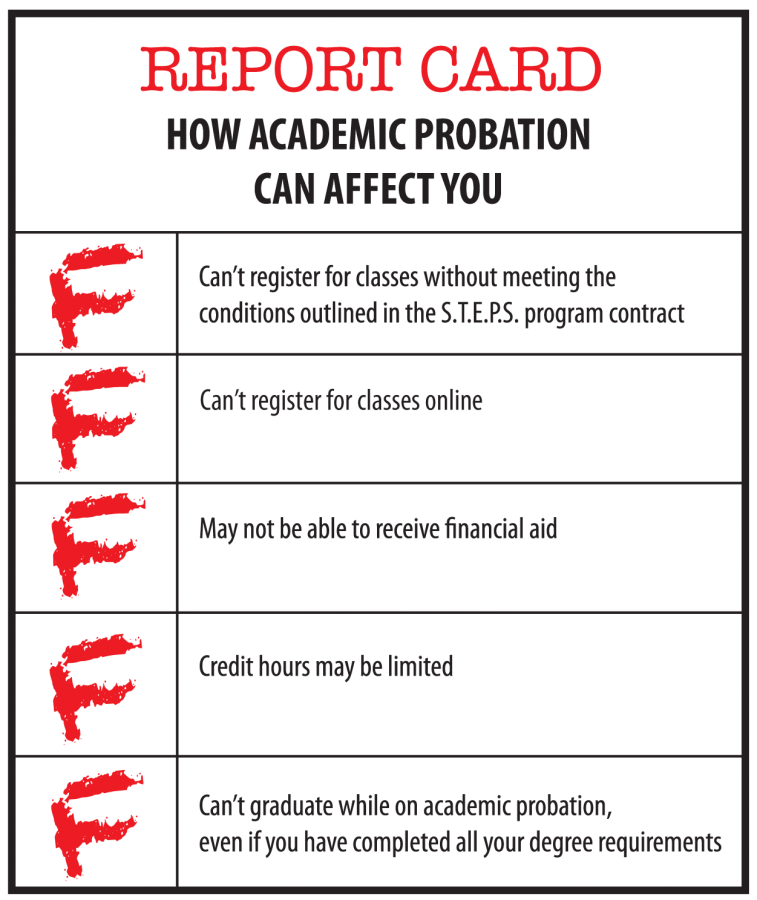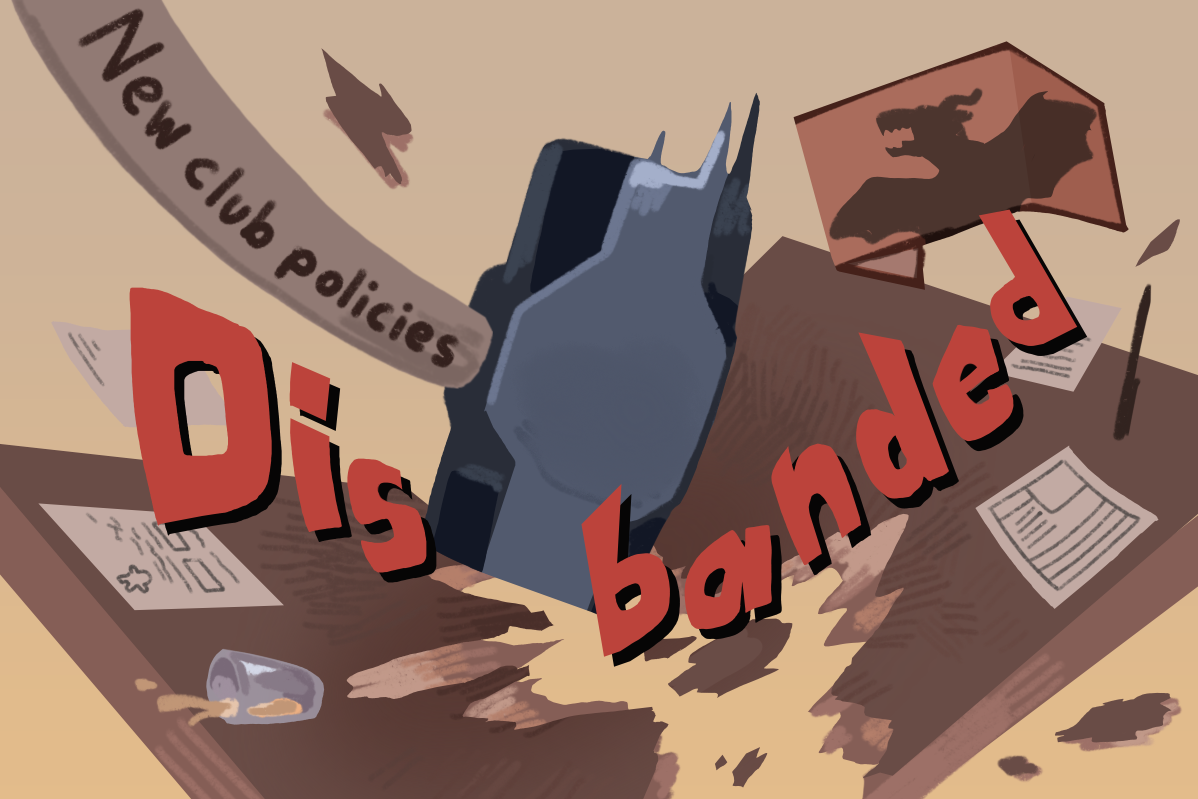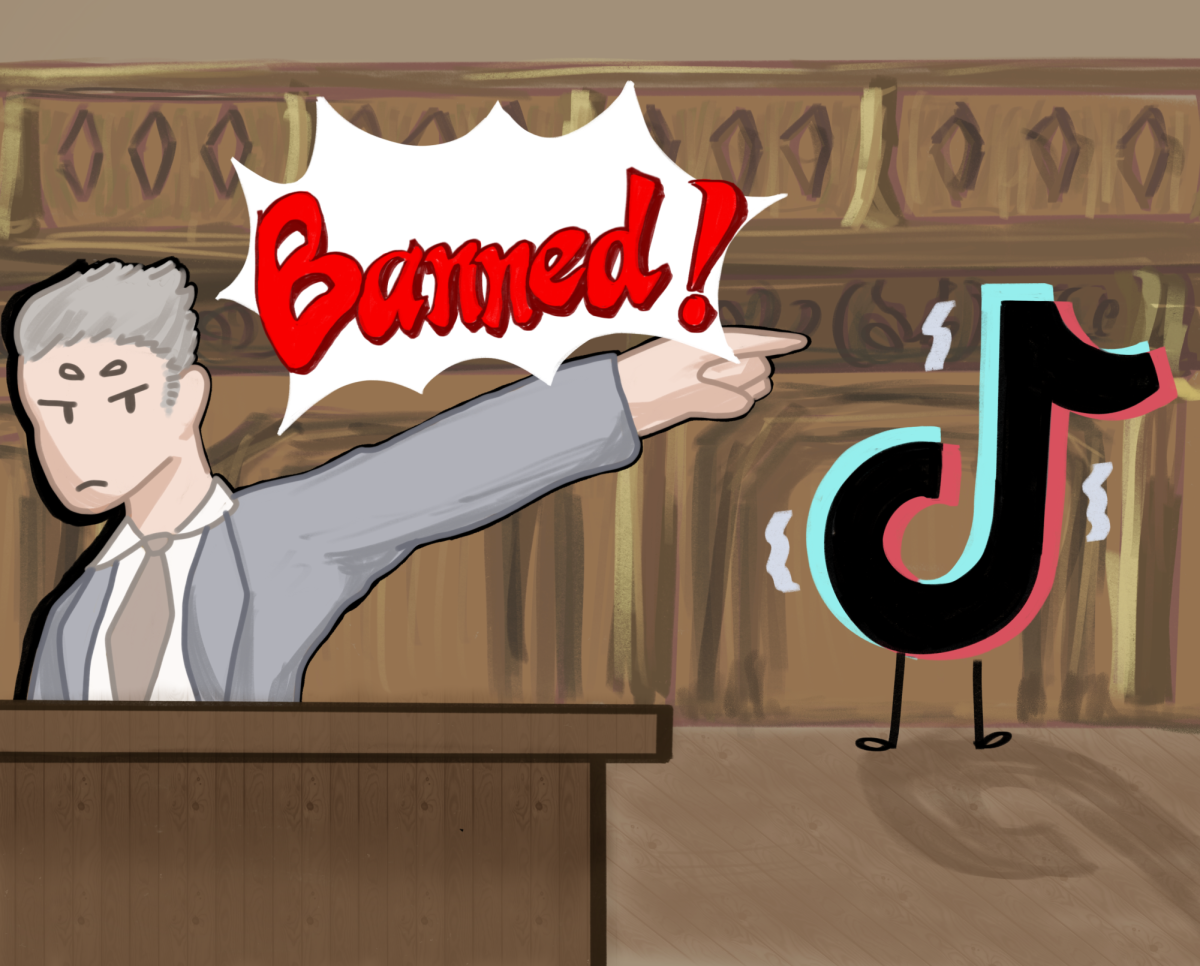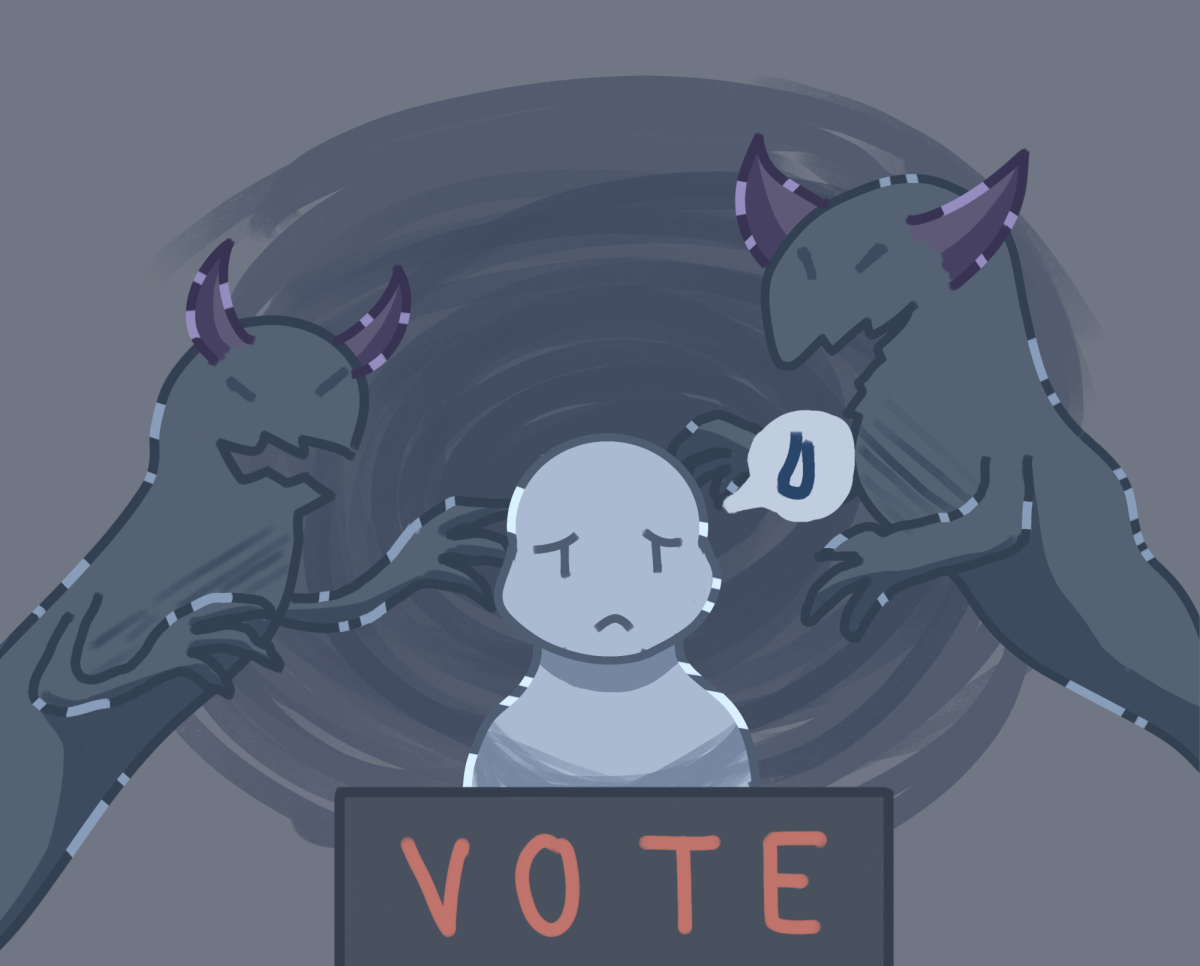 By Braulio A. Tellez
By Braulio A. Tellez
Passing classes isn’t always easy, but neither is working your way out of academic probation.
Some students are down to their last strike, and advisers are doing what they can to save them a trip to the college’s version of the slammer. Academic probation can severely impact a student’s future, but advisers say there are ways to recover from a grade-point collapse.
Some students are sacrificing their GPAs to salvage their drops, but they may not realize they are throwing themselves into the limbo of academic probation.
Many two-year college students do not consider academic probation something they have to deal with, yet it can be a threat to their scholastic careers.
Senior academic adviser LaConna Looney, who manages students under probation, said students’ poor judgment of their classroom progress in class and a lack of knowledge about the drop system can lead to an unsatisfactory academic standing.
“A lot of students get confused with this new six-drop rule and think they have to remain in a class, and then they fail it,” Looney said. “Once they fail their classes and their GPA goes below a 2.0, they fall under probation.”
Looney said students are sometimes forced to drop classes because problems outside the classroom interfere with their school schedule. She suggests that students speak with advisers and discuss their problems.
If a student’s reason for dropping is something they cannot control and the adviser deems it reasonable, the drop will not count toward the student’s limit.
“Things like your work hours changing or your baby getting sick are things that are beyond your control,” Looney said. “When students fill out those drop forms, they should use it as an opportunity to explain their situation. Then, when you come and speak with me, I can decide whether the reason is worth saving or losing a drop over.”
Looney said most students ultimately fall into academic probation because they do not take their classes seriously. Many are going to college for the first time and do not realize there are consequences which can impact their future standing at other schools.
Academic adviser Cecilia Flores has dealt with students under academic probation and said the problem can be as simple as ignoring paperwork.
“Our problem is students don’t read the documents that are issued to them,” Flores said. “They’re not reading the packets they are given when they first enroll or the announcements we send through email.”
Flores encourages students to take the time and go over the guidelines that are provided for them during the advising and enrollment process. That will help them understand the best way to manage their classes ahead of time.
“If we could just teach students to look at their documents and take responsibility for the amount of knowledge that is available to them through the ocular nerve, it would help so much,” Flores said.
Although academic probation can be discouraging, it is possible to recover from a low GPA.
When Veronica Chavarria began attending Eastfield, she was clueless as to how a community college worked, let alone what the repercussions were for not meeting the college’s expectations. After falling into academic probation, she was ready to give up.
“I had gotten to a point where I just wanted to throw everything away and say, ‘You know what? I can’t do this anymore,” Chavarria said.
Chavarria did not surrender, though. Instead, she sought help from her advisers, who placed her in the S.T.E.P.S. (Strategies Toward Educational Progress and Success) program.
“The program taught me so much,” Chavarria said. “After that, I took school much more serious, learned to organize my time better and found a new outlook on college.”
Chavarria expects to graduate in December and has been accepted at UNT Dallas.
After working her way back up the academic ladder, she hopes other students under probation will work as hard as she did.
She said avoiding probation is as easy as communicating with fellow students and becoming more involved in the classroom.
“Don’t drop your classes until you speak with your professors,” she said. “Talk to them and see if they will work something out with you. Take tutoring or work on extra credit. Don’t just accept failure.”
Chavarria stressed that there is time to recover from mistakes.
“Everyone hits rock bottom, but you just have to pick yourself up and work hard,” she said. “Trust me, it is worth it in the end.”










